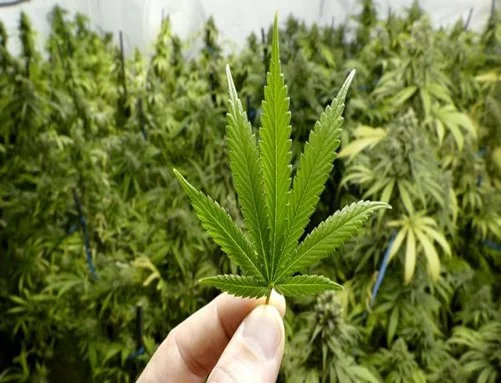Governance
In News: While granting bail to a man arrested for possessing bhang and 400 g of ganja, Karnataka High Court recently observed that nowhere in the Narcotic Drugs and Psychotropic Substances (NDPS) Act is bhang referred to as a prohibited drink or prohibited drug.
- The Bench relied on two earlier judgments, Madhukar vs the State of Maharashtra, 2002 and Arjun Singh vs State of Haryana, 2004, where the courts had ruled that bhang is not ganja, and is therefore not covered under the NDPS Act.
What is bhang?
- Bhang is the edible preparation made from the leaves of the cannabis plant, often incorporated into drinks such as thandai and lassi, along with various foods.
- Bhang has been consumed in the Indian subcontinent for centuries, and is frequently consumed during the festivals of Holi and Mahashivratri.

Bhang and the law
- Enacted in 1985, the NDPS Act is the main legislation that deals with drugs and their trafficking.
- Various provisions of the Act punish production, manufacture, sale, possession, consumption, purchase, transport, and use of banned drugs, except for medical and scientific purposes.
The NDPS Act defines cannabis (hemp) as a narcotic drug based on the parts of the plant that come under its purview. The Act lists these parts as:
- Charas: The separated resin, whether crude or purified, obtained from the cannabis plant and also includes concentrated preparation and resin known as hashish oil or liquid hashish.
- Ganja: The flowering or fruiting tops of the cannabis plant.
- Any mixture, with or without any neutral material, of any of the above forms of cannabis or any drink prepared therefrom.
- The Act, in its definition, excludes seeds and leaves “when not accompanied by the tops”.
- Bhang, which is made with the leaves of the plant, is not mentioned in the NDPS Act.
Narcotic Drugs and Psychotropic Substances Act, 1985
- The NDPS Act prohibits a person from the production/manufacturing/cultivation, possession, sale, purchasing, transport, storage, and/or consumption of any narcotic drug or psychotropic substance.
- Initially enacted in 1985, the Act was amended three times in 1988, 2001 and 2014.
- According to the Act, narcotic drugs include coca leaf, cannabis (hemp), opium, and poppy straw; and psychotropic substances include any natural or synthetic material or any salt or preparation protected by the Psychotropic Substances Convention of 1971.
- All the offences under the NDPS Act are non-bailable.
- Under the Act, property acquired by a person from drug-related offences, who has been convicted under the Act can be seized, frozen and forfeited by the government.
- Also, no relief can be sought by the drug convicts by termination, remission, and commutation of sentences passed.
- The bail provision under NDPS requires the court to have “reasonable grounds” to believe that the accused is not guilty and that he is unlikely to commit another offence while on bail.
Penalty
- The penalties under this Act are severe considering the consequences of drug abuse and its trafficking.
- The offences under the Act attract jail terms ranging from one year to 20 years and fine depending on the crime.
- Under the Act, abetment, criminal conspiracy and even attempts to commit an offence attract the same punishment as the offence itself.
- Preparation to commit an offence attracts half the penalty.
- Repeat offences attract one and a half times the penalty and in some cases, the death penalty.
Narcotics Control Bureau
- NCB is the nodal drug law enforcement and intelligence agency of India responsible for fighting drug trafficking and the abuse of illegal substance.
- It functions under Union Ministry of Home Affairs (MHA).
- It is headquartered in New Delhi.
- It was established in March 1986 to enable full implementation of Narcotic Drugs and Psychotropic Substances Act, 1985 and fight its violation through Prevention of Illicit Trafficking in Narcotic Drugs and Psychotropic Substances Act, 1988.
- Its mandate is to fight drug trafficking on an all-India level.
Source: Indian Express











